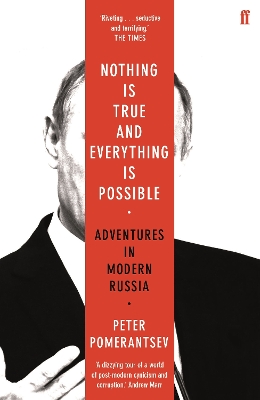Reviewed by Lianne on
This book was a real eye-opener. The author’s insight into this particular segment of Russian society was a strange, curious, sad, scary, and different account, where material possessions and monetary stability reign supreme and illusions are key. It’s like the Potemkin villages of the 18th century has persisted and adapted to their contemporary society and consumerism; it’s strange, and their values are very different from ours, and yet it very much feeds into the political structure that they’ve adopted in the post-Soviet world. Models, businessmen, brotherhoods, and cults all grace the pages; it’s a very particular subsect of society–not a lot of working and lower classes enter the story–but they are the people that this author interacted with in his line of work.
I would have appreciated more insight as to why Russian society is so intent on material success and in what ways its Soviet legacy has impacted that mentality, but given the amount of stories and investigations that the author presented in this book, it might have been too much. He does however touch on enough aspects of recent political developements to explain the sort of hyperreality that Russian society operates under, but students of Russian studies may have to supplement the narrative with further information from their own readings. Ultimately, Nothing is True and Everything is Possible is a unique read in the first-hand accounts and glimpse into contemporary Russian and Muscovite society.
Reading updates
- Started reading
- 2 October, 2014: Finished reading
- 2 October, 2014: Reviewed
